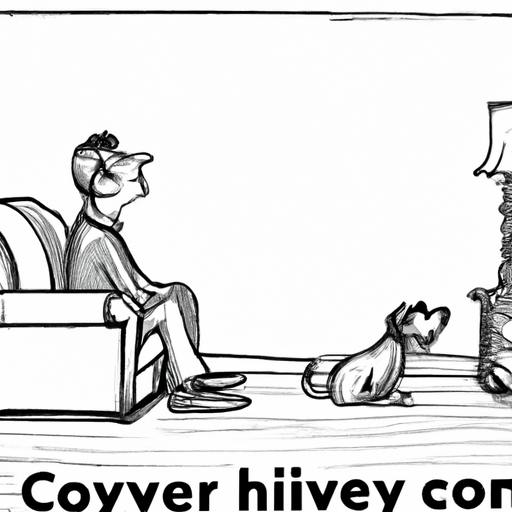If you’re a dog parent, you may have often puzzled over your pet’s baffling behavior. One of the most common and perplexing situations is when your dog seems to growl at nothing. This may leave you asking, “What exactly is going on with Fido?”
Understand Dog Communication
Dogs communicate in many ways – barking, howling, wagging their tails, and yes, growling. Growling can signify a plethora of emotions such as fear, anxiety, aggression, or even playfulness.
- Fear: Dogs often growl when they’re afraid of something. If your dog is growling at a seemingly empty space, it may be that they sense something you can’t.
- Anxiety: Anxiety can trigger growling in dogs. This could be due to a change in their environment or routine.
- Aggression: Growling can also be a warning or threat to a perceived intruder, even if that intruder is invisible to you.
- Playfulness: Sometimes, dogs growl during play. This is usually a low, soft growl, often accompanied by a wagging tail.
Possible Causes of Growling at Nothing
Understanding the reasons why your dog might be growling at nothing can help you address the issue more effectively. Here are a few possibilities:
Sensing Something You Can’t
Dogs have an incredibly keen sense of hearing and smell. They can detect sounds and scents that humans cannot. If your dog is growling at what seems like nothing, they might be responding to a noise or odor that’s out of your perception range.
Medical Issues
Sometimes, a dog growling at nothing could be a sign of a medical problem, especially if this behavior is sudden and out of character. Pain, discomfort, or illnesses like neurological disorders can cause dogs to growl.
Behavioral Issues
Behavioral issues like anxiety, fear, or territoriality can also cause dogs to growl at seemingly nothing. This might be triggered by changes in environment, routine, or the presence of unfamiliar people or pets.
How to Respond to Your Dog’s Growling
Your dog’s growling should never be ignored. Here’s what you can do when your dog growls at nothing:
- Don’t Punish: Punishing your dog for growling can actually worsen the situation. Instead, try to understand the cause of their growling.
- Consult a Vet: If the growling is sudden and unusual, it’s best to consult a vet to rule out any medical issues.
When to Seek Professional Help
If the growling persists even after ruling out medical causes and attempting to address any potential triggers, it’s time to seek professional help. A professional dog trainer or a veterinary behaviorist can provide guidance and strategies to manage the behavior.
Tips to Prevent Growling
Prevention is always better than cure. Here are some tips to prevent your dog from growling at nothing:
- Provide a consistent routine
- Socialize your dog
- Train your dog
- Provide mental and physical stimulation
Frequently Asked Questions (FAQs)
Q: Why does my dog growl at nothing at night?
A: Dogs have heightened senses and may pick up on sounds or smells you cannot detect. It could also be due to anxiety or fear.
Q: Is it normal for a dog to growl at nothing?
A: Occasional growling is normal dog behavior. However, frequent, unexplained growling could indicate a problem.
Q: What should I do if my dog growls at nothing?
A: Avoid punishing your dog for growling. Try to identify the cause of the behavior and consult a vet if necessary.
Q: How can I help my dog stop growling at nothing?
A: Providing a consistent routine, socializing, and training your dog can help. If these methods fail, consider seeking professional help.
Understanding your dog’s behavior can be a complex task, but remember, patience is key. With the right approach, you can help your dog feel safe and secure, and ultimately, stop them from growling at nothing.



